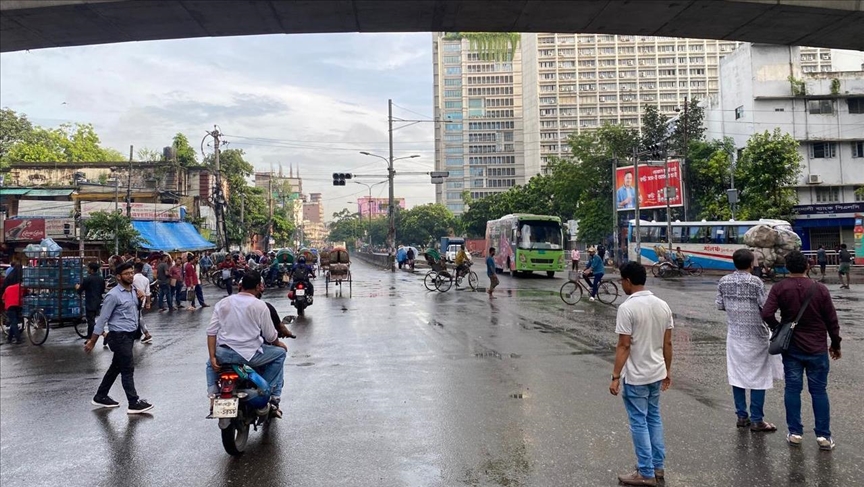Traffic jam back in Dhaka as normalcy gradually returns to Bangladesh after violent protests
Mobile internet likely to be restored by month-end, says minister

DHAKA, Bangladesh
The curfew in Bangladesh, imposed last Friday amid escalating violence during student-led quota protests that resulted in over 201 deaths, began easing on Thursday.
The government ordered offices and factories to reopen with reduced working hours, signaling a gradual return to normalcy.
The nation of 170 million faced heightened tension for over a week due to fatalities, arrests, and shoot-on-sight orders. A telecommunications blackout since last Thursday further isolated the country.
On Thursday, the capital city Dhaka experienced a semblance of normalcy from 10 a.m. to 5 p.m., as the curfew was relaxed.
Even the notorious traffic congestion had returned to the streets of Dhaka. "It took me nearly an hour and a half to commute from home to my office, a distance of approximately eight kilometers," remarked Nadia Tabssum Khan, a market researcher in Dhaka.
Military personnel deployed since Friday continue to patrol the streets alongside a substantial presence of police and paramilitary forces.
According to a senior official from the Home Ministry, who preferred anonymity while talking to Anadolu, the curfew is expected to remain in effect on Friday, with a decision pending based on the day's developments.
Last Friday's violent clashes resulted in at least 58 fatalities — the highest single-day death toll during the protests — across the nation.
The fixed-line internet services were restored since early Wednesday.
Although broadband internet has been restored, mobile data services remain unavailable throughout the country.
Zunaid Ahmed Palak, the state minister of information and communication technology, told the local media that the mobile internet is likely to be restored by the month-end.
In the past nine days, police have detained over 6,000 individuals in relation to the clashes that occurred at various locations nationwide amid the unrest sparked by the quota reform movement.
According to a press release from the Dhaka Metropolitan Police (DMP), 2,209 people were arrested in different areas of the capital city over the past two days alone.
Bangladesh has witnessed unprecedented protests and violence this month over calls for reforms in the quota system for coveted public service jobs in the country, which students regard as deeply unfair.
The quota has now been reduced to 7%, including 5% for progeny of war veterans.
Since July 16, protests intensified after police and ruling party members, including its student wing the Bangladesh Students’ League, reportedly attacked students on university campuses across the country.
Several student protest leaders including Asif Mahmud, Abu Bakr Majumdar, and Rifat Rashid, all Dhaka University students, said they were allegedly abducted by "plain-clothed police" but later returned home safely.
They did not disclose further details.
Some 201 people lost their lives while thousands of others injured during the protests since Tuesday last week. Most of the victims succumbed to bullet wounds, the national newspaper Prothom Alo said Thursday.
Anadolu Agency website contains only a portion of the news stories offered to subscribers in the AA News Broadcasting System (HAS), and in summarized form. Please contact us for subscription options.







